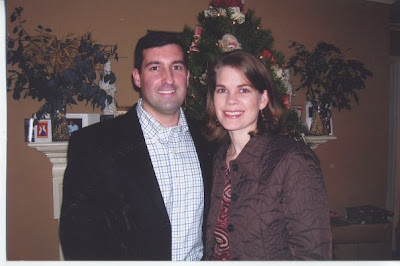Author Archive
I’ve been rebuked.
Dreams
I came across a blog today that asked this question: When you were 16, where did you think you would be at the age of 30? I thought it was a great question and it got me thinking but in a slightly different direction.
I have a friend who is an airline pilot. It might sound ordinary enough but you see, he has ALWAYS wanted to be a pilot. Since he had braces and a buzz cut in the fifth grade. That’s the only thing he has ever wanted to do. And now this is what he does professionally as a twenty-eight year old. How cool is that? I also have a friend who was passionate about American Sign Language in the second grade. How can you be passionate about something so noble in the second grade, you may ask of me. I honestly don’t know- she might be one of the “angels unawares” of which the KJV of Hebrews 13:2 speaks so ambiguously. But seriously the last time I checked she was studying American Sign Language at the graduate level. I marvel at these two friends of mine because of their steadfastness in one direction. There is just something so beautiful and symmetrical about people fulfilling their lifelong dreams.
I, on the other hand, cannot even remotely resonate with such continuity of life. I grew up wanting to be the first woman in the NBA. Basketball was my childhood passion and so it seemed like a reasonable dream. When the WNBA first kicked off you would have thought that I would have adapted my dreams a little. I didn’t. Instead I mocked the women thinking that the entire league was lame and that I would be vastly different- I would play out there with the boys. Yeah, didn’t so much happen. I don’t think I need to explain why that dream wasn’t fulfilled. Then I wanted to be an Interior Designer and took two years of classes at Baylor in this direction. I loved my classes and my professors and I could have easily seen myself as an Interior Designer. Until I took New Testament, that is. Then my world changed. But the truth is I never saw myself going into vocational ministry and certainly never saw myself as a book nerd. If you would have told me ten years ago that I would be doing what I do today I would have laughed shamelessly at your presumptuous foretelling (if I was in a good mood) or I might have slapped you in the face (if I was in a bad mood). Yet here I am sitting behind a desk with my face in a book most of the day and I couldn’t imagine life any other way.
So what about you? When you were a kid who or what did you want to be when you grew up? And what do you do now?
*Hey everyone! This is Amanda. Melissa asked Mom and me to write our answers in the post. When I was 16 I wanted to be a broadcast journalist like Barbara Walters. I remember spending many Friday nights of my young life at my grandparents’ house and we always watched 20/20 at 9:00 on Channel 13. I did go on to major in journalism, but I’m definitely not hosting a news magazine show on TV! Nowadays I work part-time from home as a blog administrator. I never would have imagined when I started working at LPM 7 years ago, much less when I was 16 and didn’t even know what the Internet was, that this would end up being my job. I love what I do and am very thankful for the life God has given me.
A Frivolous Friday
Happy Friday, Dear Siestas!
Oh, Yes, Jesus Loves Me.
“How great is the love the Father has lavished on us, that we should be called children of God! And that is what we are!” 1 John 3:1
While I was in Galveston with my family over July 4th my Mom and I got in an interesting conversation. Well, we got in quite a few interesting conversations, but one of them in particular has continued pestering me. There is a really old and intriguing graveyard in Galveston and I’m not sure if the bleak but somehow alluring glimpse of it was what got us going off on a tangent or if our own eccentricities pulled this conversation out of nowhere. Knowing us probably the latter, right? Anyway, the two of us were discussing how unique the child and parent relationship is in the human experience. How the unconditional love of a parent for a child is so matchless and so unique that it is difficult, if not virtually impossible to find something with which to compare it. She described to me the way her heart felt the first time she saw the two headstones of her mom and dad sitting side by side one another in the Davis-Greenlawn cemetery. The way it felt for her to be left alone in this world without any parents, the very human beings whose mutual existence brought her into this world. It sent a chill up my spine. Now, my Mom would be the first to assure you that her relationship with her parents was far from a perfect or idyllic one. It was, in fact, a very difficult and complicated relationship but still that truth didn’t shake or numb the dreadful feeling of being orphaned.
I got to thinking after Mom and I had this overly melancholy yet truly significant conversation how many of you feel or have felt orphaned. I bet there are several of you who don’t have anyone to go along with you to a really scary doctor’s appointment. I imagine there are a handful of you who have no one to share the burden of waiting months on end to hear back about what may seem to be a very daunting prognosis. And I wonder if there are even a few of you younger women who spend the entire day looking after and meeting the needs of several of your own children without the comfort of having even one of your own parents around to cheer you on and to tell you what a great parent you are.
I cannot presume to know what it is like to lose both parents or even to have inactive parents. But, I can say that over the past year or so nothing has resounded clearer to me than that sobering reality that I am officially an adult. I’m not talking about some of the superficial things that come along with getting older like getting wrinkles, I am talking about days when I’m sick as a dog here in Atlanta and I no longer have my mom around to tickle my back and bring me 7-Up, saltines and chicken noodle soup. I’ve had some moments when I want to lace up my running shoes and start sprinting back home to my Mom because I’ve finally decided that adulthood is totally overrated and the last thing I want to do is clean my kitchen. I’ve had a couple of days when my heart has been so broken that the thought of sitting on my dad’s lap or being in my mom’s embrace was the only thing I felt could really suffice. Many of those days Colin has been around to love on me but the Lord has made certain that he was gone on several of those days as well.
I can remember one week in particular several months back when I was tied to the bed with an incapacitating migraine and Colin was on a long business trip in Miami. In my misery, I had a revelation. I came to realize that at the end of the day, it really was just my Creator and me. You’re thinking to yourself, “Good night, Melissa, you majored in Biblical Studies, and you just figured this out!?!” How true it is that some theological truths can only be learned with time and experience. Anyway, the feeling of being all alone heightened the reality that ultimately God is my comforter. My doctor could only do so much and the pharmaceutical companies had all but failed me. I had some intense and providential moments that week slowly learning how to be consoled by a God who I cannot see or touch. For the first time in my life, in adulthood no less, I truly felt like a child of God. It may sound silly but every night of that week I listened to the album called Sing Over Me: Worship Songs and Lullabies (on very low volume, by the way). The most unlikely song was the one that I listened to repeatedly, “Jesus Loves Me” sung by Christy Nockels.
A make-up artist friend of mine told me the other day that she was on a photo-shoot with a young woman getting her bridal portraits taken. She relayed to me how the photographer instructed this young woman to think of her soon-to-be-husband while she was posing and the tears just started streaming down her cheeks. I feel about like that young woman did when I hear this version of “Jesus Loves Me”. I feel overtaken with emotion for some reason. Maybe it’s because the older I get the more I realize just how weak I really am and how dumbfounding it is that Jesus could really love me. Or maybe it’s because Christy sings the song with such conviction, like she means it. It’s really sweet to hear the song sung by a group of children but it’s wholly different to hear a grown woman sing it. To hear a grown person with fully developed mental faculties sing, “Yes, Jesus Loves Me”, well, it moves me. Don’t get me wrong, I love children, but when I hear a person who is fully aware of things like mortality, economic meltdowns and global catastrophes sing a song like “Yes, Jesus Loves Me” with such purity it slays me.
If you haven’t read or heard the song in a while, here are the lyrics:
Jesus loves me this I know
For the Bible tells me so
Little ones to Him belong
They are weak but he is strong
Yes, Jesus loves me.
Oh, yes, Jesus loves me.
Yes, Jesus loves me.
For the Bible tells me so.
Jesus loves me!
He who died
Heaven’s gate to open wide;
He will wash away my sin,
Let His little child come in.
Yes, Jesus loves me.
Oh, yes, Jesus loves me.
Yes, Jesus loves me.
For the Bible tells me so.
Jesus loves me
He will stay close beside me all the way
He’s prepared a home for me
And someday his face I’ll see.
Oh, yes, Jesus loves me.
Oh, yes, Jesus loves me.
He loves me.
Yes, Jesus loves me.
For the Bible tells me so.
Pretty powerful, right? Perhaps we skipped a couple of those verses in kindergarten because I don’t remember the song being all that weighty. Maybe I was too busy eating a donut. The donuts were my favorite thing about Sunday school growing up. Yes, I was sinful at birth. The first line I love is “little ones to Him belong, they are weak but He is strong”. I like to think of “little ones” not just as young children but as you and me. I figure I have some license since in the gospel of John, Jesus addresses grown men as “little children” (John 13:33; 21:5 “children”). Lately I’ve been reading a lot about being called children of God and what the implications of this reality are during our earthly journey. This past week I came across a sermon by John Piper in April 1995 called “The Depth of Christ’s Love: Its Lavish Benefits”. He comments on this text, 1 John 3:1 and I think you’ll enjoy reading it. I was most moved by the second half.
“Not only did it cost him his Son to save us from sin and death and hell and not only were we enemies so that God had to propitiate his own righteous anger in order to save us but he went way beyond the love of rescue and the love of sacrifice and the love of clemency to his enemies. In and through all this he had a greater design. He showed us another kind of love beyond all that. He might have rescued us, sacrificed for us, forgiven us, and not gone any further. But instead he showed us another kind of love—he took us into his family. He made us to be called children of God. Don’t take this for granted. First of all, he might not have saved us at all. He might have said, “Enemies don’t deserve saving, and that’s that.” He might have said, “My Son is too precious to pay for angels, let alone humans, let alone ungodly, rebellious humans.” But he also might have said, “I will save them from hell, and forgive their sins, and give them eternal existence—on another planet, and I will communicate with them through angels.” Nothing in us, or in the nature of the world required that God would go beyond all redeeming, forgiving, rescuing, healing love to this extreme—namely, to an adopting love. A love that will not settle for a truce, or a formal gratitude, or distant planet of material pleasure, but will press all the way in to make you a child of God. A member of the family. But even that is not an adequate description of this kind of love. When John writes about our becoming children of God, he is not thinking mainly in terms of adoption. He is thinking in terms of something more profound. He is thinking of new birth. There is no human analogy to this…The love that John has in view here in 1 John 3:1 is not the love that merely takes care of paper work and adopts. That would be amazing beyond words—to be adopted into God’s family. And Paul does describe it this way. But John sees more. God does not adopt. He moves in, by his Spirit, his seed, John calls it, and imparts something of himself to us, so that we take on a family resemblance” (John Piper).
Being called a child of God is not just a metaphor.
It is who we are.
Regardless of how self-sufficient we imagine ourselves to be.
Or how old we are.
Our Father is close beside us all the way.
In our darkest and loneliest hours.
Long after our earthly parents are gone.
During a string of seemingly endless doctor’s appointments.
And at the moment we draw our very last breath.
In Christ, we are never truly orphaned.
“How great is the love the Father has lavished on us, that we should be called children of God! And that is what we are!” 1 John 3:1
That we should be called children of God.
What a wonder.
A Theological Conversation that Matters: Majoring on the Majors.
My dear Siestas! I would have written sooner, but I’ve just now finished reading all of your answers to my post a few weeks ago, “Talk to me.” Kidding. But for real y’all, I opened up a very glorious can of worms in that there post, didn’t I? For those of you who missed it, I asked everyone to answer two questions: 1) What biblical/theological/doctrinal issue(s) do you wish you were more educated about? 2) What biblical/theological/doctrinal issue(s) are you tired of hearing people bicker about? I was so delighted to learn that I am not the only chic on the blog-block who loves to talk all things theology. If you remain interested in these more technical discussions, then I will continue to respond every several weeks to your comments as in depth as I can without boring you to absolute tears. While I honestly don’t want to waste my hours working on posts that will be “too dry” or “too heady”, I also don’t want to under evaluate your desire to discuss theological issues. It would not be cool for the LPM blog to be part of promoting the long-standing reputation that women just don’t care about discussing theology. Can’t stomach the thought.
Now, if you read through the comments you probably gleaned the same thing I did: most of us are completely gorged by excessive arguments about church music preferences and minute details of the five points of Calvinism but have very little knowledge about the Trinity. This is telling but unsurprising because as many of you pointed out we often major on the minors and minor on the majors. And in terms of Christian theology it certainly doesn’t get much more “major” than the Trinity. Just the other day I when I was doing some personal reading I came across this paragraph:
“Every good answer to every question about God’s character appeals to God as Triune…My claim is no overstatement; it is an axiom of Christian faith. It is a theological rule the church has followed so we will not forget nor distort what we know of God in Jesus Christ, and so our knowledge of God in Jesus Christ will inform everything else we know and want to know better. Trinitarianism makes explicit the whole structure of Christian thought, which since its beginning has imitated and radicalized ‘the three structures of the Jewish understanding of God’ in light of Jesus Christ. It is neither a generalization nor a speculative exercise. It is our way to honor Christ’s memory and follow in his footsteps” Telford Work, Ain’t Too Proud to Beg: Living through the Lord’s Prayer (Grand Rapids: Eerdmans, p 16).
Turned out I was doing a theological read concerned with the Trinity the very same day I was reading through your comments. It got me all jazzed up to want to post about the Trinity. But to be honest, I didn’t feel qualified to do it justice. The bulk of my training is in biblical studies and biblical languages and the peeps who usually exposit the doctrine of the Trinity the best not only have biblical training but are also church historians or systematic theology buffs. So, I immediately wrote a former theology professor of mine from Moody Bible Institute and begged and pleaded for his help. He is one of very few people I know who speaks in Trinitarian language regularly and in a way that us common-people can actually understand.
Dr. Bryan Litfin is not just a former professor of mine, but he is truly a friend. It took me a long time to consider him as such because after all, he is a specialist in Patristics and has written articles like, “Tertullian’s Exegetical Use of the Regula Fidei as an Interpretive Device in Adversus Marcionem.” Studia Patristica (2006). Dr. Litfin did his doctoral studies at University of Virginia and had the incredible opportunity to work under Robert Louis Wilken, one of the most distinguished professors of early christian studies in the field. How the heck are you supposed to be “friends” with a dork, oops, I mean a guy like that? Dr. Litfin’s teaching really resonated with me from the beginning, partly because he knows what it is like to grow up under quite a bit of pressure. His father is the President of Wheaton College and is a legendary preaching machine well known throughout the evangelical seminary world. I remember Dr. Litfin telling a small group of us a hilarious story about when he was a student at Dallas Theological Seminary and he had to preach in the same department where his father taught and had been given a hallowed preaching nickname. It’s brutal for me just thinking about it. I figured if he could live up to that kind of pressure, I could handle some of the pressure I live with as well. It was also Dr. Litfin’s respect for his father and his respect for Wheaton College that drew me to do my Master’s in Biblical Exegesis at Wheaton Grad School. Those two years turned out to be two of the best years of my life. To make things even more exciting, Dr. Litfin’s wife Carolyn is a siesta! She is an incognito one most of the time but she reads the blog often and is always such an encouragement to me. She is my very favorite kind of woman – she not only loves the Lord with all of her heart but she also is an amazing cook and has a huge passion for Scripture. And she is so classy! They are a great pair, see them for yourself:
There is really no overstating how much the Litfin family means to me and there is no doubt that you will be hearing about them again, especially because Dr. Litfin has an exciting book coming out April of next year but we will save that news for another time. It deserves its own post. So that is enough by way of introduction. I hope you’ll read the post all the way through, maybe even twice. Here it is:
If there’s one thing I’ve observed about the siestas, it’s that they love the Bible. And no one can claim to be biblical without understanding the doctrine of the Trinity. Let’s talk a little bit about this famous doctrine that we all know we should believe, yet have a hard time grasping.
The Christians of Bible times worshiped Jesus as their divine Lord. They agreed with Thomas when he encountered the risen Christ and exclaimed, “My Lord and my God!” (John 20:28) Jesus himself made the kinds of claims only a divine person can make, and his followers accepted his testimony that he is “one with the Father.” (John 10:30) But if you think about it, this is a hard thing to accept in a Jewish context. Remember what Deuteronomy 6:4 had said? “Hear o Israel: The LORD our God, the LORD is one.” The first Christians lived with a certain level of tension. They worshiped the Heavenly Father and Jesus Christ as God, yet they claimed to be monotheists. They didn’t try to figure out how both could be true at once.
Soon, however, people in the Roman Empire began to address this problem. They didn’t always get it right, and we call the erroneous views that cropped up, “heresies.” One heretical view taught that Jesus was simply a different manifestation of the same God who was previously known as the Father. In other words, God the Father now reveals himself as God the Son, but they’re actually the same guy. You can see how this concept, called “modalism” by theologians today, preserves the “oneness” of God. However, we must ask with skepticism in our voices: Is Jesus Christ just God the Father in a different outfit? No, that can’t be right. The early church fathers scrapped the modalistic idea as quickly as it popped up.
In the year 318 AD in Egypt, the senior pastor of the church at Alexandria held the view that Christ is eternal because he shares the same divine existence as the Father. However, one of the assistant pastors in Alexandria, named Arius, disagreed. To him, this smacked of modalism: it made Christ and the Father into the same being. Arius confronted his pastor (or bishop) and said Christ cannot be eternal. Only the Father is eternal, argued Arius. Therefore, Christ must have been created by God at a point in time. Arius claimed, “God existed when Christ did not.” You can see immediately this is just plain wrong. Today we call it the Arian heresy. But it made sense to a lot of people in ancient times. They viewed the Father as eternal, and said he created Christ as his helper.
The Arian heresy spread and became a huge divisive issue. The ancient church needed to define its views on the matter, so a council was called in 325 AD at a town called Nicaea. (It’s pronounced “Ny-SEE-uh, and today it’s known as Iznik, Turkey.) At the Council of Nicaea, the church rejected Arius’s view. The early church fathers defined the important Trinitarian terms of “person” and “substance,” which are the same terms evangelical Christians consider orthodox today. I teach this doctrine every semester in my theology class at Moody. The view held in the “Nicene Creed” produced by the council is that Christ and the Father have the “same substance.” In Greek, the term is homoousios, and sometimes you see that important word in books about the Trinity.
But if we say the Father and Son have the same substance – that they are both eternal and neither is created by the other – have we slipped into modalism? In other words, have we made God the Father and God the Son into the same being? Absolutely not. The theology of Nicaea uses the term “person” to distinguish them. God the Father is one Person, and God the Son is another. They share the same substance, but not the same personhood. For example, think of Beth, Melissa, and Amanda. They each share the substance of being a woman, yet each is distinct as a person. So it is with the Trinity: the shared substance is divine, but the persons are distinct.
In the aftermath of the Council of Nicaea, Arianism did not go away, but managed to hang around due to political considerations in the Roman Empire. Fortunately, several church fathers rose up to defend the ideas of Nicaea. The most famous defender was Athanasius, who went on to become the senior pastor of the Alexandrian church. Thanks to Athanasius’s tireless work, which often put him at odds with the Roman emperors who preferred Arianism, the true view of the Trinity (Nicene Trinitarianism) finally triumphed. Several thinkers also extended the theology that had originally applied to the Father and Son to the Holy Spirit as well. The initial debate had centered on the question of Jesus’ relationship to the Father, but everyone knew you were supposed to baptize in the threefold name of Father, Son, and Spirit. (Matthew 28:19) After the original council in 325 AD, a more secure theology was put in place by the church fathers, so that the Holy Spirit was clearly included as divine. The upshot is this: each member of the Trinity is a distinct “person,” yet they share one “substance.” That is the mark of the true doctrine of the Trinity: 3 co-eternal persons, 1 shared substance. Don’t follow anybody who tries to teach you otherwise!
What does all this mean for the busy siesta in 2009? There are several big-time implications of the Trinity. First, we see that the full and complete deity of Christ is defended. As Athanasius so often insisted, our salvation is compromised if you accept the Arian premise that Christ isn’t fully God. Christ had to be one with the Father to provide perfect salvation, and one with mankind by becoming fully man. To save us, Jesus had to be 100% God and 100% Man. Athanasius was really clear about this point.
We also see in the doctrine of the Trinity that the Bible’s teaching is well-balanced. There are many verses that depict the Father, Son and Spirit as divine, yet we are never taught in Scripture to worship three separate gods. We worship ONE GOD who is a Trinity of persons. How exactly something can be three and one at the same time is a mystery to us; yet we speak this way because the Bible makes both points equally clear. God is both three and one. He is a Tri-Unity, according to Scripture.
There is one final implication of the Trinity I want to mention. Imagine a man locked in solitary confinement his whole life. He lives in a stark white cell. Not once does he ever have any interaction with another living being. My point is not to focus on the tragic life or psychological trauma such a person would have, but to ask the simple question, “Can this man truly love?” In our imaginary scenario, we would have to say no, because he has no object for his love. He has no relationship with anyone. He is solitary. He is utterly alone. There is no one to receive his affection and give it back in return. But God is not like this. His love is so full, so abundant, so profound, that Relationship is built into his very being! Even before he said, “Let there be light” and created a world with people for Him to love, the giving and receiving of love already existed within the Trinity. God is a Community of persons who love each other perfectly.
Do you see what this means? The Trinitarian God is not just the “boss of the world”; he is Eternal Love. The experience of a relationship between Father, Son and Spirit is fundamental to who God is. Love is his identity – and he shares it with us! This is the amazing teaching of Jesus’ High Priestly Prayer in John 17:21. Jesus prays that all Christians may be one, just as he and the Father are one. In other words, Jesus invites us into the Trinity’s community of love! Interpersonal love characterizes God’s own being for all eternity. We are called to participate in it – and to demonstrate it to a watching world in our own relationships.
The doctrine of the Trinity is not as complex as theologians make it out to be. Yes, it has some mysterious aspects, but its basic ideas are clear enough. The Bible teaches that God the Father, God the Son, and God the Holy Spirit are three distinct persons who love each other perfectly, forming one Trinity with a shared divine substance. The God of love invites us into his community, and he makes it possible for us to live in loving relationship with others so that the image of God can be seen in man.
Dr. Bryan Litfin, Associate Professor of Theology, Moody Bible Institute
I am so grateful for Dr. Litfin’s willingness to guest blog here at LPM. I think it is a beautiful thing when academic folks and ministry folks partner together. I wish it happened a whole lot more often. So, thank you, Dr. Litfin, on behalf of the entire LPM blog! And come back and visit again.
Talk To Me
My ladies.
What biblical/theological/doctrinal issue(s) do you wish you were more educated about?
Love,
Melissa
P.S. If you were by any chance getting a little prideful about your baking skills and you need a power-packed dose of very sweet humility, check this out.
A lady who loves decorating cakes and who has five children under the age of 8 baked this lemon cake covered with fondant for her Esther study group. She was inspired by the work-book design. Look at the incredible detail. Not to mention the worn out work-book. Absolutely stunning. You are my hero!!!
The Sad Story of One Backslidden Cook
Hello friends!
Bring broth with 1/4 teaspoon salt just to a boil in a small saucepan, then pour over couscous in a bowl and let stand, covered, 5 minutes. Fluff with a fork and set aside until ready to use.
Meanwhile, heat oil in a 10-inch heavy skillet over moderately high heat until hot but not smoking, then sauté onion with 1/4 teaspoon salt, stirring occasionally, until golden, about 6 minutes. Add garlic and sauté, stirring, until fragrant, about 1 minute. Add zucchini and remaining 1/2 teaspoon salt and sauté, stirring occasionally, until just tender, about 5 minutes. Reduce heat to moderately low, then stir in coriander, chili powder, cumin, and pepper and cook, stirring frequently, 2 minutes. Gently stir zucchini mixture into couscous and cool to warm or room temperature. Just before serving, stir in mint and lemon juice.
Makes 4-6 side-dish servings.
Do you have a recipe that rocks your world right now? Or would you rather just eat out?
Love to all,
Melissa
P.S. This is for Roxanne Worsham… since you are going on vacation and all. I usually don’t share my secrets but here it goes. This is the mascara I use and I buy it over and over and over again:
I go light on the bottom but way heavy on the top. The natural look is not for me- I like blackest black 🙂
Grab Life by the Mane
Compassion Winners and Some Final Thoughts
You all are amazing, you know that!?! We had 104 people apply for a scholarship to sponsor a child in East India through Compassion in a one hour period of time. That is incredible.
So, here it goes. Our winners were chosen by Random.org:
8- Sara @ 2:46
15- Lindsay @ 2:49
75- Laurie @ 3:23
58- KrisPT @ 3:12
48- Melody @ 3:07
44- MiMi @ 3:05
103- Tera @ 3:42
17- Living in His Arms/Jennifer Dayton @ 2:50
76- Laura @ 3:24
37- Stef Layton @ 3:00
Congratulations, Ladies. And thank you for your willingness to write and to love a child in East India. Now please send your full name, physical address, home and cell phone number, along with your email address to [email protected] and we will get this ball rolling!
Since we are talking about India and Compassion right now, I thought I’d leave you with a few final memories of mine. Patricia Jones, one of my fellow India-bloggers, told us on our last day in Calcutta to walk away with one “snapshot” from the trip. One very vivid picture that could sum up our experience. Well, I need to have two. I know, I’m overly verbose if not just downright rebellious. You should have seen me in Middle School. It wasn’t pretty. I’ve always gotta walk over the line, just a little bit. Sorry, Patricia. By the way, I miss you. And everyone else from the trip.
Deep breath.
So here are my two snapshots:
Here I am at one of the Compassion projects hanging over a little boy reading a passage from the Gospel of Matthew in Bengali.
Let’s make it 1,000,010!!!!!!!!!!!
*Comments now closed*
Many of you graciously walked along with me as I journeyed with Compassion International through Calcutta, India. You were right alongside me so I know that you will rejoice when I tell you that as of today Compassion International has officially sponsored its 1,000,000th child!

























